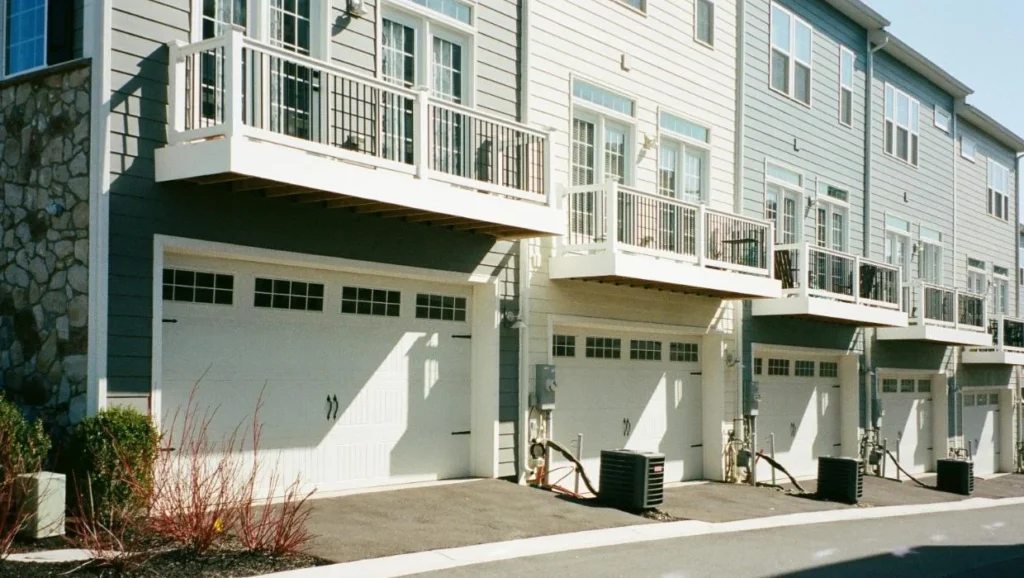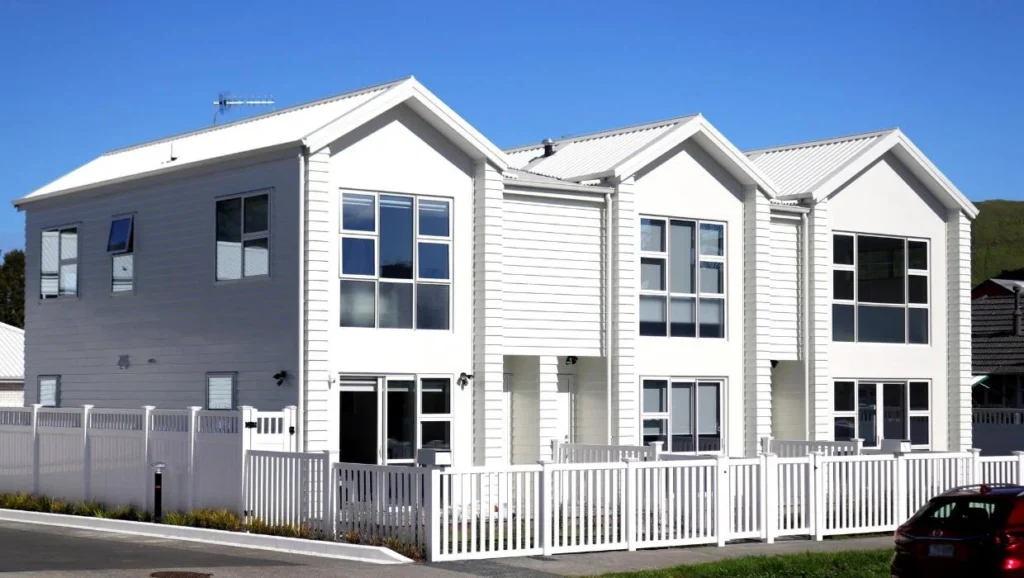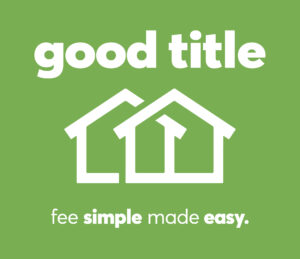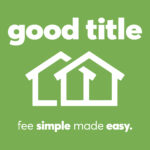What you need to know before buying a cross lease property

Written by Belinda Moffat, 05/05/25 for Stuff.
Belinda Moffat is the chief executive of the Real Estate Authority. She answers your house buying and selling questions.
QUESTION: On our first house hunt we have found a lovely townhouse, but there are some common areas shared between the neighbours and this home, including the lawn and carport area.
I’m told it’s a cross lease property, but I don’t know a lot about what that means. It would be great to understand how buying and owning a house with shared areas may differ from one that doesn’t.
ANSWER: It’s not uncommon to have questions about cross lease ownership — it’s one of the top search terms that bring people to REA’s consumer website, Settled.govt.nz.
REA has seen issues arise where people take on a cross lease without first having a good understanding of what they are buying, or the benefit of legal advice early in the process.

As with any property purchase, it is very important to do the necessary research and due diligence to gain that understanding, as well as have the support of a property lawyer or conveyancer to guide you through the specific details.
This will help you decide whether the cross lease property you’re interested in will be a good fit for you.
What is a cross lease?
Cross lease combines features of both freehold and leasehold ownership, as well as some elements of its own.
In New Zealand, real estate consumers are generally familiar with freehold property — it means you own the land plus anything built on it. It is the most common form of property ownership in this country.
You may have also come across leasehold property, where someone else owns the land and you purchase an exclusive right to possession of that land and the buildings on it. This would last for a specific period over which you pay rent according to the terms of the lease.

Cross lease titles are common with flats and townhouses, where a lot of larger sections may have been subdivided. With a cross lease, you typically own two different ‘interests’ in the property.
Firstly, you own a share of the freehold title for the property in common with the other cross leaseholders. You would also own a leasehold interest in the particular area and building that you occupy.
These leases usually last 999 years for a nominal rent (which is usually not demanded to be paid but is something to check).
In the situation you describe, you might have an exclusive leasehold interest in the townhouse, while the shared ownership would give you equal access rights to areas that all the leaseholders use, such as the shared driveway.
It is important you obtain all relevant information from the vendor, or their licensed real estate professional (licensee), and seek advice from your conveyancing lawyer.
Buying a cross lease
One of the important things to know when considering a cross lease is that this form of ownership often comes with restrictions on what you can do with the property.
Any significant changes to the footprint of an area you are entitled to use exclusively (like the building you occupy) may need to be agreed upon by all or a majority of the owners. For example, depending on the terms, you may need the other owners’ consent for things like painting the exterior, building a deck or putting up a fence.
The terms, conditions and restrictions on the property are noted on the cross lease title documentation, which you should obtain and read thoroughly before considering making an offer. It’s key that you understand what these mean and what impact they may have on how you use and enjoy the property. With any property transaction documents, a lawyer can help explain the fine print and give you confidence to make informed decisions.
A cross lease title will also include a plan showing the footprint of the building you are entitled to occupy. As part of your pre-purchase due diligence, you should check this plan to see that it matches the physical location and footprint of the property, including the areas that any of the cross leaseholders have the exclusive right to use, as well as any common or shared areas.

Of course, all the other due diligence you should undertake before any real estate purchase also applies when buying a cross lease property. This includes obtaining a land information memorandum (LIM), which will show you: information about the land and property that the local council holds, and an independent assessment of the condition of the townhouse and surrounding property from an accredited property inspector who has professional indemnity insurance.
Maintaining good relations with the other cross leaseholders is essential. If a real estate agency is conducting the sale, you should ask the salesperson how communication is managed between co-owners, whether there have been any legal disputes regarding the cross lease while the vendor has owned the property, and if any property changes have been agreed to or vetoed under the terms of the cross lease during that time.
While a cross lease is a complicated type of ownership, many cross lease owners find ways to make it work. I would encourage you to talk with other cross leaseholders and find out how they make the arrangement work well for them.
While it’s always important to remember that a licensee works for their client and is obliged to seek the best outcome for them in a transaction, under Rule 6.4 of their Code of Conduct overseen by REA, they may not: mislead a customer (a buyer), provide false information, or withhold information that should by law or in fairness be provided.
I hope that this information helps clarify some of the key aspects of cross lease ownership for you.
As a first home buyer, it’s perfectly reasonable that a less-familiar type of ownership might raise some questions for you. Getting good advice and information before you decide to buy is key.
However, making a confident and informed decision really comes down to understanding the fundamental principles I’ve outlined, as well as all the specific details in the cross lease arrangement you’re considering.
All the best with your house-hunting!
For more information about the process of buying or selling property – and what to expect when working with a real estate professional – visit settled.govt.nz. Have a question for Belinda? Email homed@stuff.co.nz.
https://www.stuff.co.nz/home-property/350262018/what-you-need-know-buying-cross-lease-property
We have helped many clients with cross lease properties, we can help you too.
Our knowledgeable team is ready to answer any questions you have about your cross lease.
NEWSLETTER
Ⓒ 2025 Survus Consultants

